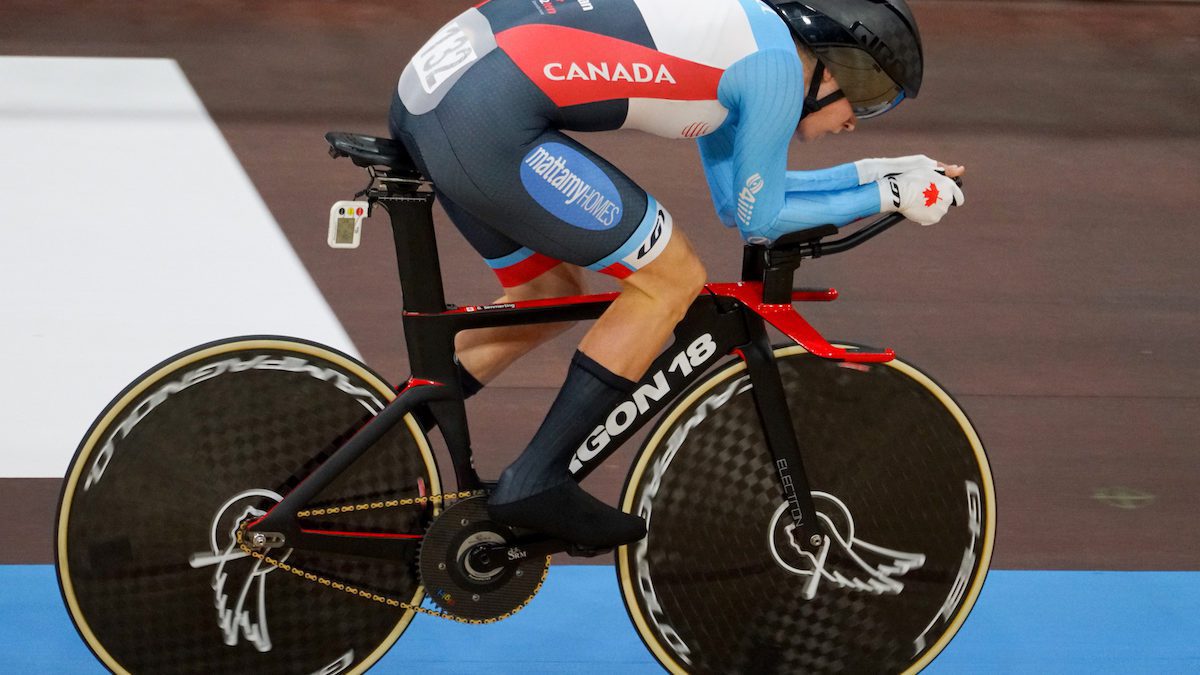Olympian Georgia Simmerling details her struggles with bulimia
The athlete hopes to increase awareness

Olympian Georgia Simmerling discussed her struggles with bulimia on Wednesday. In a blog post, she said her goal is to let others who may be in similar situations know they are not alone. Vancouver’s Simmerling is a professional cyclist, but she also has the unique distinction of having previously competed in both alpine skiing and ski cross. She is the first Canadian to compete in three different sports in three different Olympic Games.
“There are only a handful of individuals who know this but I am now ready to share that I suffered from bulimia during the prime years of my athletic career,” Simmerling said. “I have always been viewed as a woman who is comfortable in her own skin but to the many who have experienced eating disorders know that there are two sides to every story, one of seeking acceptance from others and the other of shame and self-harm.”
Studies have shown that 35 per cent of female and 10 per cent of male university athletes were at risk for anorexia nervosa. Furthermore, 58 per cent of female and 38 per cent of male university athletes were at risk for bulimia nervosa. However, it is not something all athletes are comfortable to talk about, and many suffer in silence.
Simmerling said that for almost ten years, which includes the majority of her athletic career, she suffered from bulimia. It’s taken her that long to be able to come public with the illness, but she hopes to create further awareness with other athletes. “Coming forward and sharing my journey is certainly far from easy. However, I think it is so important to share my story to help another person facing similar circumstances, ” Simmerling said. “For anyone struggling out there, please remember that there are people and resources to support you. You are loved and people close to you want only one thing, for your happiness and health to shine brightly.”
She said that for years, she would obsess over her weight, and caloric intake. “In the kitchen, too, I cracked down. Preparing my own food, I avoided all fats, including nuts and peanut butter,” she said. “I wouldn’t even cook with oil. Anything that might make me heavier was eliminated.”
This unhealthy relationship with food is not uncommon, according to Dr. Krista Van Slingerland. “Paying attention to how you fuel your body, including whether it is optimized to train and compete, is an inherent part of performing at a world class level,” the physician said. “It can be challenging for high-performance athletes and coaches to recognize where the line is between adaptive and unhealthy approaches to food.”
“You are not alone, that’s my overarching message.” Simmerling said.
There is help available for athletes who may be dealing with an eating disorder. The National Eating Disorder Information Centre (NEDIC) operates Canada’s only National Toll-Free Helpline (1-866-633-4220) providing information on treatment options and/or support to Canadians affected by disordered eating and related concerns. You can also visit the NEDIC website for more information.
